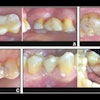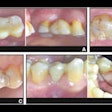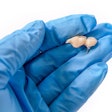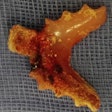Poor dental health, especially tooth loss, is associated with several established cardiovascular risk factors, including diabetes, smoking, blood pressure, and obesity, according to research being presented March 9 at the American College of Cardiology annual meeting in San Francisco.
Using data from the ongoing Stabilization of Atherosclerotic Plaque by Initiation of Darapladib Therapy (STABILITY) study, a global clinical trial evaluating the antiatherosclerosis drug darapladib, researchers investigated the prevalence of self-reported tooth loss and the occurrence of periodontal bleeding and their relation to cardiovascular risk factors in high-risk patients with coronary heart disease.
At the start of the study, 15,828 study participants from 39 countries reported their remaining number of teeth -- categorized as none, 1-14, 15-19, 20-25, or 26-32 -- and frequency of periodontal bleeding (never/rarely, sometimes, often, or always). Data on cardiovascular risk factors also were obtained and statistical analyses were performed, adjusting for age, smoking, diabetes, and education.
The researchers found that approximately 40% of participants had fewer than 15 teeth and 16% had no teeth, while 25% of subjects reported periodontal bleeding.
For every decrease in number of teeth, the researchers observed increasing levels of Lp-PLA2, an enzyme that increases inflammation and promotes hardening of the arteries, as well as an increase in other cardiac risk markers, including LDL, blood sugar, blood pressure, and waist circumference. Participants with fewer teeth also had higher probability of having diabetes, with the odds increasing by 11% for every decrease in number of teeth category.
Greater loss of teeth was also associated with being a current or former smoker, compared with being a nonsmoker and having a lower education. Periodontal bleeding was associated with higher levels of bad cholesterol and blood pressure and a greater likelihood of being a nonsmoker and having a higher education.



















